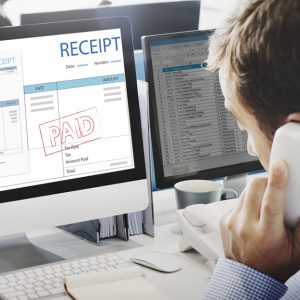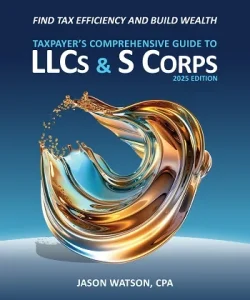
Business Advisory Services
Everything you need to help you launch your new business entity from business entity selection to multiple-entity business structures.
Hey - Our site just had a makeover and we are sorting through the hiccups!
Hey - Our site just had a makeover and we are sorting through the hiccups!

Everything you need to help you launch your new business entity from business entity selection to multiple-entity business structures.

Designed for rental property owners where WCG CPAs & Advisors supports you as your real estate CPA.

Everything you need from tax return preparation for your small business to your rental to your corporation is here.

Table Of Contents


Petitioners did not maintain adequate books or records that support the claimed expenses under section 274(d).
Seems simple enough, right? Almost like the Tax Court has a pile of templates and just click click send, next. And with that, the taxpayers’ vehicle and travel deductions evaporated faster than a gas receipt left in the sun and the court played some Queen (and we all know the song they’d be singing).
Sidebar: Before scanners were common after using thermal printing of receipts, people would put receipts in the freezer.
Mr. Khan and Ms. Tahir ran a small business and claimed various vehicle, travel, and “other” expenses as deductions. Unfortunately, their documentation was more creative writing than recordkeeping. When the IRS asked for proof, the couple offered generalized explanations and reconstructed spreadsheets. That didn’t cut it.
The court’s conclusion was blunt:
Because petitioners failed to satisfy the substantiation requirements of section 274(d) and the rules of section 6001, we cannot apply the Cohan rule to estimate the business use of the automobile or the travel expenses.
We’ll get into the Cohan rule, which is quite lovely in a bit. For now, no contemporaneous mileage log, no receipts tied to business purpose, no clear split between personal and business use—no deduction. It’s that simple.
Oh, and for those who don’t have the entire tax code memorized, here is the language from IRC Section 6001 which basically gives wide latitude for documentation requests-
Every person liable for any tax imposed by this title, or for the collection thereof, shall keep such records, render such statements, make such returns, and comply with such rules and regulations as the Secretary may from time to time prescribe. Whenever in the judgment of the Secretary it is necessary, he may require any person, by notice served upon such person or by regulations, to make such returns, render such statements, or keep such records, as the Secretary deems sufficient to show whether or not such person is liable for tax under this title.
Sections 274(d) and 6001 of the Internal Revenue Code require taxpayers to prove their expenses with adequate records. For vehicles, travel, and certain entertainment or “listed property,” the substantiation rules are ironclad. You must document:
If that information isn’t written down—or captured by an app—when the expense occurs, it doesn’t exist for tax purposes.
This strict substantiation standard is not new, but Khan is a reminder that courts have zero sympathy for creative reconstruction. As we like to tell clients, “You can’t expense intent.” Yeah, we don’t really say that, but it made for a catchy tagline.
According to Black’s Law Dictionary (11th edition, 2019), the term “strict” is defined as:
strict, adj. Characterized by exactness or precision; requiring rigid compliance; leaving no room for deviation or relaxation.
In legal usage, strict is often paired with standards like strict liability, strict construction, or strict compliance, meaning the rule or requirement must be followed exactly as written, without flexibility or allowance for intent, approximation, or substantial compliance. Drug and alcohol policy for the airlines, for example, have a strict compliance- meaning, the airlines don’t care how the drug got into your body. It’s there. End of story.
So when the Tax Court refers to the “strict substantiation requirements” under IRC Section 274(d), it literally means the taxpayer must meet the precise, detailed evidentiary requirements — time, place, business purpose, and amount — with no leeway for estimates or partial compliance.
The IRS expects — and the Tax Court routinely looks for — corroboration of mileage totals through objective evidence such as odometer readings from service invoices, oil changes, state inspection reports, or dealer maintenance records. IRS examiners are trained to ask for this. The IRS in various audit technique guides and manuals basically say this-
Verify odometer readings through repair invoices, oil-change stickers, or inspection slips to substantiate total miles driven.
So even a perfect mileage app or mileage log is incomplete if it doesn’t reconcile to something tangible.
Ah yes, the famous Cohan v. Commissioner rule from 1930. It says the court can estimate a tax deduction if a taxpayer clearly incurred an expense but lacks full documentation. It’s the “we’ll take your word—partly” rule.
Here’s the catch: the Cohan rule does not apply to expenses covered by IRC Section 274(d). Congress decided long ago that mileage, travel, meals, and entertainment require strict proof—no guessing, no estimation, no “close enough.” In other words, you can guesstimate office supplies, but not business miles.
So when taxpayers argue, “But we obviously used the car for business,” the court responds, “Great—show us the log.” Khan couldn’t, and that’s the end of the road.
The IRS can allow annualizing mileage under certain conditions, but it’s a narrow and carefully defined exception, not a substitute for full-year contemporaneous logs. The IRS acknowledges that maintaining a daily log for 365 days may not be practical, and so it permits using a representative sample — usually a contemporaneous 90-day (or longer) log — if it’s truly representative of the vehicle’s use throughout the year.
IRS Publication 463 (Travel, Gift, and Car Expenses, 2024) reads in part-
If you use your vehicle for both business and personal purposes, you must keep records showing the business miles. You can use a sample period (such as a representative month) to determine the business-use percentage if you can show that the sample period is typical of the entire year.

For small business owners, and landlords alike, vehicle and travel deductions are the top two areas that collapse under IRS scrutiny. People keep receipts in glove boxes, jot notes on napkins, or worse—try to reconstruct mileage at year-end. That’s like building a logbook from Google Maps and good intentions.
For those operating S Corps the safest approach (and only approach) is an Accountable Plan. It allows you to reimburse yourself for legitimate mileage and expenses, pushing the tax deduction to the business return instead of your personal one. If your vehicle is personally owned, pay yourself the IRS standard mileage rate (70 cents per mile for the 2025 tax year) and keep a clear log of business miles. Done right, it’s clean, compliant, and defensible.
Sidebar: Why is Accountable Plan. or APlan in WCG parlance, safest? S Corps have a 0.1 to 0.3% audit rate versus your Schedule C and Form 1040 (individual tax return) which could easily be 4% to 8%, and could be higher with increased travel deductions. Why is the only approach? As an S Corp shareholder, you are paid a W-2 wage. There is not a place on your 1040 tax return to deduct expenses against your W-2 (this ended with Tax Cuts and Jobs Act of 2017).
“Wait,” you might say, “I’m just a landlord, not a business owner.” Sorry, the same rules apply. If you’re driving to your rental property, meeting contractors, or picking up supplies, that’s a business activity under IRC Section 274(d).
Our rental property book puts it this way: treat your vehicle like a business vehicle if you use it for property management. That means documenting every trip: date, destination, business purpose, and mileage. A scribble like “rental errands” doesn’t cut it.
Landlords often get tripped up by mixed-use vehicles—the family SUV that doubles as the “property manager car.” You can’t just call it 50% business because it “feels right.” You need evidence. Keep a log showing which trips were for rentals and which were personal. The business percentage determines how much of your mileage, gas, insurance, and maintenance is deductible. Without proof, you risk losing it all—just like Khan.
Vehicles are magnets for IRS attention because they’re easy to abuse (yes, yes, everyone else but now you, we get it). Everyone drives somewhere every day, so distinguishing personal from business use matters. A dedicated business vehicle (titled in the business and used solely for work) is clean. A mixed-use vehicle is not a red flag, but it requires careful documentation and good habits.
Khan reminds us that when you blur the line, the IRS sees only gray—and gray turns to red ink. The court specifically rejected estimates or blanket percentages. “Mostly business use” isn’t evidence; it’s wishful thinking.
The rule is simple: if you want the deduction, act like an auditor’s watching.

An Accountable Plan allows businesses to reimburse employees including S Corp shareholders for business expenses without the reimbursements being considered taxable income by the IRS.
Khan isn’t just about mileage. It’s about habits. IRC Section 6001 requires taxpayers to keep records that substantiate any deduction. The court has said it for decades: deductions are a matter of legislative grace, not entitlement. You don’t get them automatically—you earn them with documentation.
You can’t hand the court a shoebox of receipts and say, “We drove a lot.” That’s not substantiation—that’s a scrapbook. So whether you’re running an S Corp, flipping houses, or managing a few rentals, stop guessing. Keep logs, make reimbursements properly, and treat your records as part of doing business—not an afterthought.
 WCG CPAs & Advisors and Jason Watson, CPA, have released the 2025 Edition of Taxpayer’s Comprehensive Guide to LLCs and S Corps. Over 400 pages of pure pleasure! This edition has updated 2025 data such as IRA and 401k limits including Social Security wage limits, but it also has a bunch of new information spread out various chapters such as customized multi-entity structures, expanded reasonable shareholder salary sections, more tax reduction mechanics among various little tidbits gleaned from hundreds of small business consultations. Riveting!
WCG CPAs & Advisors and Jason Watson, CPA, have released the 2025 Edition of Taxpayer’s Comprehensive Guide to LLCs and S Corps. Over 400 pages of pure pleasure! This edition has updated 2025 data such as IRA and 401k limits including Social Security wage limits, but it also has a bunch of new information spread out various chapters such as customized multi-entity structures, expanded reasonable shareholder salary sections, more tax reduction mechanics among various little tidbits gleaned from hundreds of small business consultations. Riveting!
It is available in paperback for $49.95 from Amazon and as an eBook for Kindle for $39.95. Our book is also available for purchase as a PDF from ClickBank for $29.95. Why do we all love 95 cents? We all know that 39.95 is really 40 bucks. At least we are not like gas stations… $39.949. Silly! Yet we digress. Apple iBook, Barnes and Noble Nook, among others are not utilized since their format is challenging to make mini updates here and there.
How can I avoid self-employment taxes? This simple question was the inspiration for creating an article describing the benefits of an S Corporation. That original article, which was about four pages long, quickly became a series of Knowledge Base articles on the WCG website. The articles touched on basic topics such as how to elect S Corp status, shareholder payroll, reasonable salary determination and liability protection. Those broad topics demanded much more information, both horizontally by spanning into more related issues, and vertically by digging deeper into the granular yet riveting levels of the tax code. Beyond general S Corp benefits, our book will show you-
This book is written with the general taxpayer in mind. Too many resources simply regurgitate complex tax code without explanation. While in some cases tax code and court opinions are duplicated verbatim because of precision of the words, this book strives to explain many technical concepts in layperson terms with some added humor and opinions. We believe you will find this book educational as well as amusing.
Each week we receive several phone calls and emails from small business owners and other CPAs across the country who have read our Taxpayer’s Comprehensive Guide to LLCs and S Corps and praised the wealth of information. Regardless of your current situation, whether you are considering starting your own business or entertaining a contracting gig, or you are an experienced business owner, the contents of this book are for you.
While this book’s origins were based on reducing self-employment taxes through an S Corporation election, it has dramatically expanded to sound business advice from entity structures to operational considerations to business tax deductions and retirement planning.
Enjoy! And please send us all comments, hang-ups and static. This book is as much yours as it is ours, except the tiny royalty part- that’s ours. Stop by and we’ll buy you a beer with the pennies.
While we have you, please check out our rental property book aimed at real estate investors, I Just Got A Rental, What Do I Do?
If you buy our 430-page book and think that we didn’t help you understand small business tax law or the benefits of S corporations, let us know. We never want you to feel like you wasted your money. If you are ready to add some insightful reading into your day, click on one of the preferred formats. Amazon is processed by Amazon, and the PDF is safely processed by ClickBank who will email you the PDF as an attachment.
 |  |  |
| $49.95 | $39.95 | $29.95 |

Want to talk to us about tax return preparation, tax planning and strategy, and all the other things that go with it? We are eager to assist! The button below takes you to our Getting Started webpage, but if you want to talk first, please give us a call at 719-387-9800 or schedule an discovery meeting.
Jason Watson, CPA is a Partner and the CEO of WCG CPAs & Advisors, a boutique consultation and tax preparation CPA firm serving clients nationwide with 7 partners and over 90 tax and accounting professionals specializing in small business owners and real estate investors located in Colorado Springs.
He is the author of Taxpayer’s Comprehensive Guide on LLC’s and S Corps and I Just Got a Rental, What Do I Do? which are available online and from mostly average retailers.
Table Of Contents

Tax planning season is here! Let's schedule a time to review tax reduction strategies and generate a mock tax return.

Tired of maintaining your own books? Seems like a chore to offload?
Did you have questions about how this works? Do you always need a mileage log? Have a specific question about small business tax dedudctions and need a tax expert?
The tax advisors, business consultants and rental property experts at WCG CPAs & Advisors are not salespeople; we are not putting lipstick on a pig expecting you to love it. Our job remains being professionally detached, giving you information and letting you decide within our ethical guidelines and your risk profiles.
We see far too many crazy schemes and half-baked ideas from attorneys and wealth managers. In some cases, they are good ideas. In most cases, all the entities, layering and mixed ownership is only the illusion of precision. As Chris Rock says, just because you can drive your car with your feet doesn’t make it a good idea. In other words, let’s not automatically convert “you can” into “you must.”
Let’s chat so you can be smart about it.
We typically schedule a 20-minute complimentary quick chat with one of our Partners or our amazing Senior Tax Professionals to determine if we are a good fit for each other, and how an engagement with our team looks. Tax returns only? Business advisory? Tax strategy and planning? Rental property support?

Everything you need to help you launch your new business entity from business entity selection to multiple-entity business structures.

Designed for rental property owners where WCG CPAs & Advisors supports you as your real estate CPA.

Everything you need from tax return preparation for your small business to your rental to your corporation is here.


